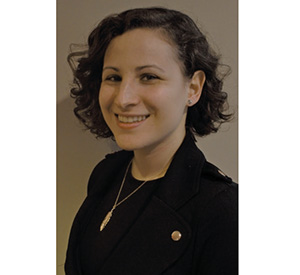
There’s a common theme connecting the double whammy of commercialized holidays, which are also known as the Thanksgiving-Black Friday-holiday frenzy. These holidays are about appreciating what we have, who we are with and all of the good things in life. We celebrate the past with friends and family and enjoy the company of others before the weather turns unbearably cold.
Ironically, we overeat on Thanksgiving, buy items we might not necessarily need on Black Friday and beg and cry and worry about the gifts that we will receive during the December holidays. If anything, this is the most selfish time of the year. It may be called the season of giving, but our culture has turned it into a hair-pulling, snatching fist fight to buy the newest toy to hit the market. With the invention of the internet, the physicality of the fights may have decreased, but the struggle and heartache are still occurring.
How are these days and time of year about giving thanks? The time we have for reflecting is usurped by materialism and the fear of having to see our extended family.
The Jewish calendar is full of holidays for giving thanks. However, we don’t just save our thanks for the day or a week in the year, but every day when we daven (pray). Aside from giving thanks, there’s also another aspect of davening: asking and requesting. The siddur is designed to help us ask and thank Hashem, because we are inclined to do more asking than thanking. During the holiday season, it’s noticeable how we struggle to mumble a thank you after whining about needing a certain product. This also occurs even on the day we all get together to give thanks.
During davening, we reflect on the good and ask for help to fix the hard parts in life. The holiday season gloats how once a year everything is perfect and problems don’t exist. This way of “bubble” thinking can only lead to more strife than happiness because one cannot be happy if happiness equals perfection. Expecting to get a gift will only lead to a lesser appreciation of being given one at all. This is why it’s harder to give thanks if you feel that there’s nothing to be grateful for.
Entitlement has struck this generation and taken away our patience and gratitude. If we expect that something should happen, then it must happen or else someone will be blamed. But sometimes, there’s no one to blame, not even oneself because life isn’t a holiday party. Actually, life is a holiday party, just not the one that’s advertised. It’s messy, beautiful and sometimes we get wonderful surprises.
The “perfect family” exists just like the “perfect child” and the other holiday myths that get told around this time of year. The real story, the one in which a family went out to fight against the all-powerful Greek nation/culture, is what we should be thinking about when giving thanks. We tell the stories of our past as if they were based on fiction, but this isn’t how our history is meant to be passed on. Instead, we should discuss the Maccabees and how their decision to fight cost them, yet despite all the tragedy, they desired to light the menorah. The depth of their bravery cannot be glossed over with lights and dreidel cookies. When we light the menorah, we are thanking Hashem for giving the Hasmoneans the strength to keep fighting, even when all odds were against them.
We don’t need to designate one day, or even a season, for showing our gratitude. Just like how every day we daven and remember what happened in our history, we can remember to give thanks to those who have given us our past and those who have become part our future.
By Sara Aliza Judasin
Sara Aliza Judasin is a senior at Montclair State University and an interning investigator at the State of New Jersey Office of the Public Defender.











